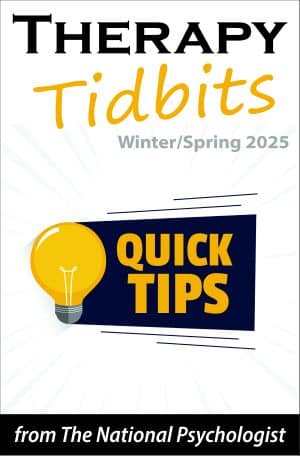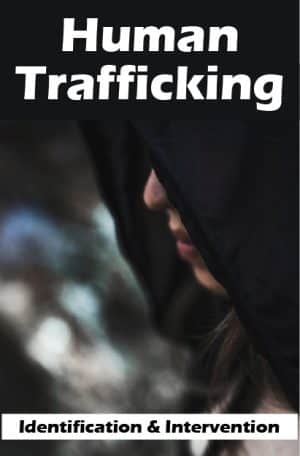- ADHD
- Adults
- Alternative Medicine
- Alzheimers & Aging
- Animal-Assisted Therapy
- Autism
- Behavior Therapy
- Child & Adolescent
- Closeout
- Communication
- Couples-Family-Parenting
- Cultural Diversity
- Depression & Anxiety
- Domestic Violence
- Ethics & Risk Management
- Gender Identity
- HIV-AIDS
- Human Trafficking
- Laws & Rules
- Medical Errors
- Mindfulness & Yoga
- Miscellaneous
- National Psychologist
- Nutrition & Fitness
- Pain Management
- Psychotherapy
- Sexuality
- Substance Abuse
- Suicide
- Supervision
- Trauma & PTSD
Ethics & Risk Management: Expert Tips 10
Ofer Zur, PhD; Robert H. Woody, PhD, ScD, JD; Tim Branaman, PhD, ABPP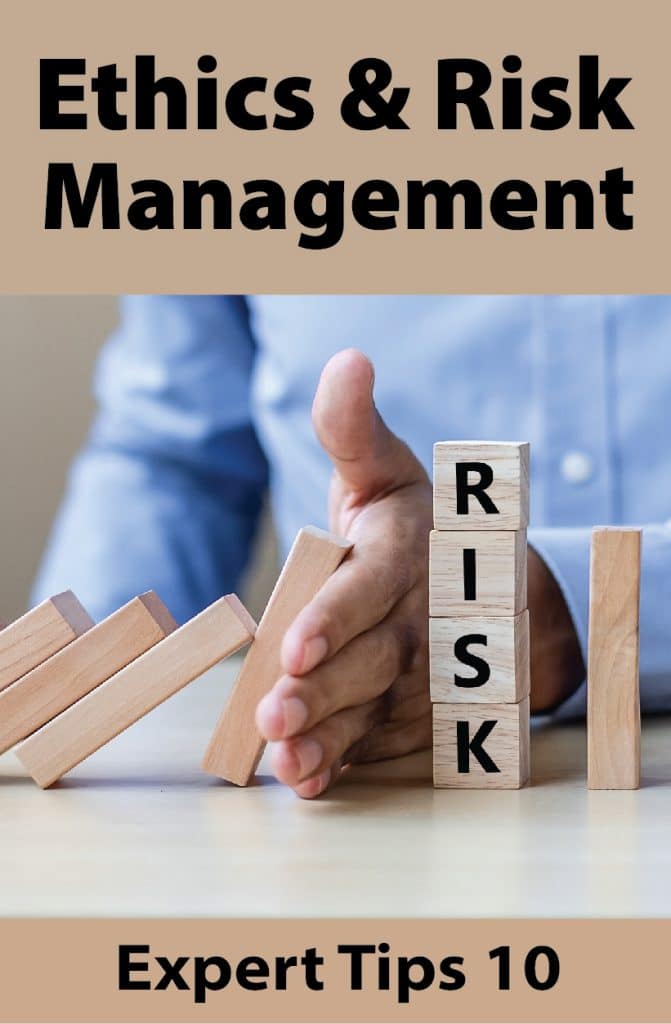
$39.00
 Intermediate
Intermediate
 Online
Online
Course Abstract
Ethics & Risk Management: Expert Tips 10 is a 3-hour online continuing education (CE) course that addresses a variety of ethics and risk management topics, in the form of select articles written by experts in the field for The National Psychologist. Topics include:
- What Happens Next? Confidentiality after Death – Considers the legal and ethical issues of sharing confidential client records after a patient’s death.
- Out-of-Office Encounters May Be Beneficial – Discusses the importance and benefits of out-of-office therapy sessions and encounters with clients.
- Court Cases, Market Forces – An overview of court cases that highlight the ways in which regulatory boards may be at risk for an FTC complaint or federal suit.
- Closing Practice Not for Faint of Heart – Describes the emotional toll that closing a private practice may have on clinicians and offers practical advice on how to prepare for this transition.
- Fee Splitting is Unethical, and Sometimes Illegal – Describes the ins and outs of fee splitting and how to remain both ethical and legal in practice.
- 3 Questions to Ask HIPAA Vendors – Offers three important questions to consider when selecting a HIPPA service.
- Confronting Dissatisfaction with Professional Services – Provides twelve risk management strategies for practitioners to minimize, and hopefully avoid, consumer dissatisfaction and ethical/legal complaints.
- Advertising Offers Must be Ethical – Explores how to advertise psychological services both ethically and legally.
- Choosing Interpreter Requires Considerations – Raises points to consider when choosing an interpreter for use in clinical practice.
- Mass Shootings Unfairly Stigmatizing Mentally Ill – Highlights the issues surrounding media exposure and violent gun crimes, reminding clinicians of the ethical issues regarding mental health and gun violence.
- Court Ruling Could Affect Psychologists – The author reflects upon the court rulings in the case of Byrne v Avery Center to highlight the difference between privilege and confidentiality when patient records are under subpoena.
- Employee vs Independent Contractor – Why it Matters – Outlines criteria for determining if a clinician should be designated as an employee or independent contractor.
- Self-Care is Essential to Risk Management – Explains the importance of self-care, not only for the clinician’s health, but for the good of the practice.
- Telepsychology Takes Special Training – An overview of essential elements to consider before launching a telepsychology practice.
- New Lawsuit Revives Issue of Duty to Warn – Reminds practitioners of the Duty to Warn of potential threatening behavior from patients and recommends keeping up to date with specific state laws.
- Calling out Microaggressions: An Ethical Obligation – Shares an example of a microaggression and suggests a structured, easy to remember, strategy for intervention.
- What Kind of Liability Insurance is Best? – Discusses the difference between an Occurrence insurance policy and a Claims-Made policy.
- Managing Intoxicated Patients – Provides an overview of common situations and factors practitioners should prepare for and to inform their professional decision making when encountering an intoxicated patient.
- Sexually Kinky Clients Present Ethical Issues – Weighs the ethical issues that accompany treating patients who engage in kinky behaviors.
- Special Considerations Needed When Working with First Responders – Outlines the difficulties psychologists may encounter in treating first responders and provides suggestions on how to overcome the ethical challenges that may arise during treatment.
- Touching Not Always a Violation – Examines the need for discrepancy and compassion when supporting clients and lists the Zur Institute’s Risk Management guidelines.
- Child Porn Poses Ethical Dilemma – Clarifies the conflict that a therapist faces when patients reveal they are watching pornography online.
- How to Ethically Increase Access to Care During COVID-19 – Considers the importance of thoughtfully navigating the ethics of billing and payment during the pandemic.
- Therapy in the Time of COVID-19: A Look at One Ethical Issue – Provides a principle-based decision-making model to guide clinicians who are faced with patients who express intent to circumvent public health measures, placing the well-being of others at risk.
- ‘Please Don’t Tell My Surgeon’: Managing Privacy, Confidentiality in Integrated Healthcare Settings – Discusses the ethical challenges practitioners may face when working in an integrated healthcare setting.
- Minority IQ Scores Boosted to Enable Execution – Examines the issue of boosting IQ scores for minorities in sentencing and briefly explains the outcomes of relevant court cases.
- A Guide to Child Custody Evaluations and Expert Testimony – Shares key points to bear in mind before becoming involved with child custody evaluations and expert testimony.
- Seeing Domestic Violence Through Another Lens – Considers how men, who are victims of domestic violence, are overlooked and underserved.
- Talk of Risks, Side Effects May Lead to Nocebo Effect – Suggests ways to reduce the frequency and severity of Nocebo Effects.
Course #31-39 | 2022 | 55 pages | 20 posttest questions
Learning Objectives
- Identify three ethical issues and risks involved during the process of closing a practice
- List two strategies for ethical conduct in advertising one’s professional practice
- Name three privacy concerns in conducting telepsychology
- Describe two ethical issues that can occur when managing difficult clients
- Identify two ethical considerations that arise in therapy during the COVID-19 pandemic
- List three risk management concerns involved in work with child custody evaluations and domestic violence
Course Directions
This online course provides instant access to the course materials (PDF download) and CE test. The course is text-based (reading) and the CE test is open-book (you can print the test to mark your answers on it while reading the course document).
Successful completion of this course involves passing an online test (80% required, 3 chances to take) and we ask that you also complete a brief course evaluation.
About the Author(s)
Ofer Zur, PhD : Find out More
Disclosure
Financial: Receives author compensation from Professional Development Resources, Inc.
Nonfinancial: No relevant nonfinancial relationships exist.
Robert H. Woody, PhD, ScD, JD : Find out More
Robert H. Woody, PhD, ScD, JD, is a professor of psychology at the University of Nebraska Omaha, an APA Fellow and member of the Council of Representatives, a Michigan licensed psychologist and a member of the Florida, Michigan and Nebraska Bars. His email is psychlegal@aol.com.
Disclosure
:
Financial: No relevant financial relationship exists.
Nonfinancial: No relevant nonfinancial relationship exists.
Tim Branaman, PhD, ABPP : Find out More
Tim F. Branaman, PhD, ABPP (Forensic), a Texas licensed psychologist, has delivered clinical and forensic services in a practice group he established in the mid-eighties. He also serves on the Texas State Board of Examiners of Psychologists to which he was appointed in 2008 and subsequently appointed as chairman in 2010. He may be contacted by email at: drtimbranaman@gmail.com.
Disclosure
Financial: No relevant financial relationship exists.
Nonfinancial: No relevant nonfinancial relationship exists.
CE Information
Counseling
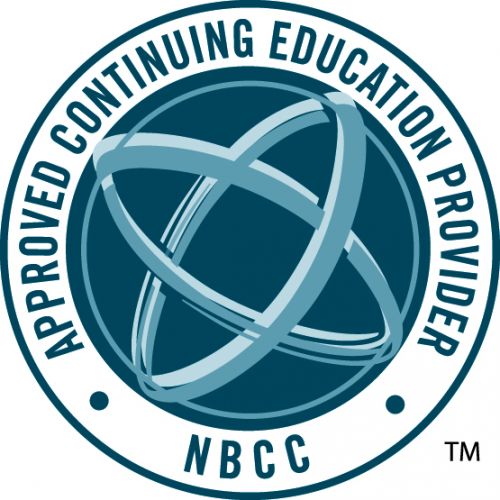
Professional Development Resources (PDR) has been approved by the National Board for Certified Counselors (NBCC) as an Approved Continuing Education Provider, ACEP No. 5590. Programs that do not qualify for NBCC credit are clearly identified. PDR is solely responsible for all aspects of the programs.
Professional Development Resources is CE Broker compliant (#50-1635 - all courses are reported within two business days of completion). Professional Development Resources, Inc. is recognized by the New York State Education Department’s State Board for Mental Health Practitioners as an approved provider of continuing education for licensed mental health counselors (#MHC-0135 - Note: New York counselors will receive 3 continuing education credits for completing this self-study course).
Marriage and Family Therapy
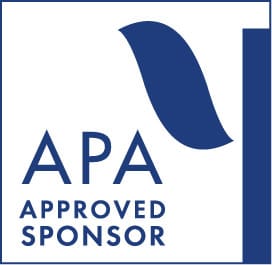
Professional Development Resources is approved by the American Psychological Association (APA) to sponsor continuing education for psychologists. Professional Development Resources maintains responsibility for this program and its content. Professional Development Resources is also approved by the National Board of Certified Counselors (NBCC ACEP #5590); the Association of Social Work Boards (ASWB #1046, ACE Program); the New York State Education Department's State Board for Mental Health Practitioners as an approved provider of continuing education for licensed marriage and family therapists (#MFT-0100 - Note: New York MFTs will receive 3 continuing education credit(s) for completing this self-study course); the Texas Board of Examiners of Marriage and Family Therapists (#114); and is CE Broker compliant (#50-1635 - all courses are reported within two business days of completion).
Psychology

Professional Development Resources is approved by the American Psychological Association (APA) to sponsor continuing education for psychologists. Professional Development Resources maintains responsibility for this program and its content.
Professional Development Resources is CE Broker compliant (#50-1635 - all courses are reported within two business days of completion). Professional Development Resources, Inc. is recognized by the New York State Education Department’s State Board for Psychology as an approved provider of continuing education for licensed psychologists (#PSY-0145).
School Psychology

Professional Development Resources is approved by the American Psychological Association (APA) to sponsor continuing education for psychologists. Professional Development Resources maintains responsibility for this program and its content.
Professional Development Resources is CE Broker compliant (#50-1635 - all courses are reported within two business days of completion). Professional Development Resources, Inc. is recognized by the New York State Education Department’s State Board for Psychology as an approved provider of continuing education for licensed psychologists (#PSY-0145).
Social Work
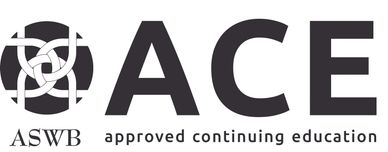
Professional Development Resources, #1046, is approved as an ACE provider to offer social work continuing education by the Association of Social Work Boards (ASWB) Approved Continuing Education (ACE) program. Regulatory boards are the final authority on courses accepted for continuing education credit. ACE provider approval period: 6/12/2022 - 6/12/2025. Social workers completing this course receive 3 ethics continuing education credits.
Professional Development Resources is CE Broker compliant (#50-1635 - all courses are reported within two business days of completion). Professional Development Resources, Inc. is recognized by the New York State Education Department's State Board for Social Work as an approved provider of continuing education for licensed social workers (#SW-0664 - Note: New York social workers will receive 3 continuing education credit(s) for completing this self-study course). Professional Development Resources is also approved by the Texas State Board of Social Worker Examiners (#5678).
Customer Testimonials
The articles were amazingly clear and informative, in a very concise way. I now want to subscribe to the journal for help with my ongoing practice.
I needed help printing the test and appreciated the help from the staff. Thank you.
The articles were quite varied and interesting. They were up to date and informative.
Current and up date ethics. It was very informative.
Succinct, chocked full of relevant information. Presented in an easy way to read. I learned a lot with this course. Thank you.
More Testimonials
Good variety of issues and practical.
Thoughtful and unique in the topics discussed and the information that was presented.
This was an excellent course. I appreciated the breadth of subjects addressed. The authors were very thorough. I appreciated the level of analysis in addressing various ethical challenges.
Very thorough and informative program.
The presenter did a good job explaining common practical ways to navigate as a psychologist.
Very good article and helpful resource of information. Well done!
Very good course and I like the format.
I found the content fascinating, addressing issues that many psychologists have not encountered.
Comprehensive information that will serve as a reference source for me.
I have now completed both Ethics 9 and 10. I sincerely appreciate this format that prevents redundant materials on the same subject. As a long practicing clinician, I also appreciated the inclusion of some new material I have not seen before. Thank you!
I really enjoyed this course. It was informative and quick to the point. I didn't feel too bombarded with heavy material all at once. The pace for me was great it was easy to follow and the topics were interesting and relevant.
Very impressed with the content and format of PDR. Another well done class. Thank you.
Excellent ccourse presentation. Very organized, easy to understand. Appropriate for my needs.
Well written. I appreciated that the topics were written in a concise manner and not too lengthy to read.
I found the course to be very informative in addressing many ethical concerns.
I appreciate the commentary and discussion on Kink as it is an area that many therapists struggle in, and it's nice to see it in a general discussion on ethics not only in a kink focused training.
Thank you for an informative and relevant course in ethics!
The information on using interpreters is very helpful.
The information is informative and pertinent to my needs. Thanks for the presentation, and the ease of obtaining.
The course covered some interesting topics with good examples that get your brain engaged!
This was an interesting and enjoyable way to present the material--having multiple authors for short essays on the various topics.
Great ethics course. Many new topics covered well.
I thoroughly enjoyed this course. The anecdotal comments and engaging writing style made this very interesting.
Good summaries of common ethical concerns.



